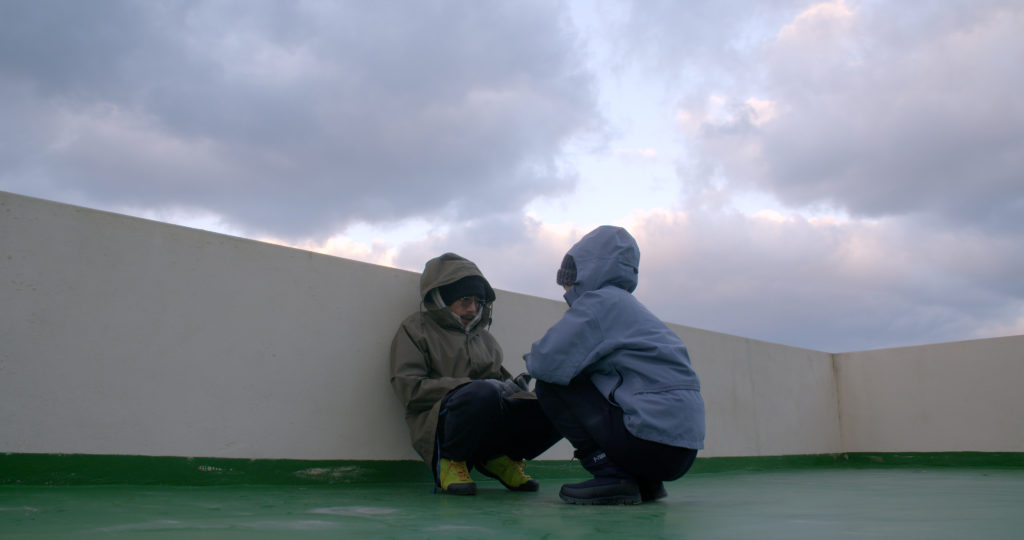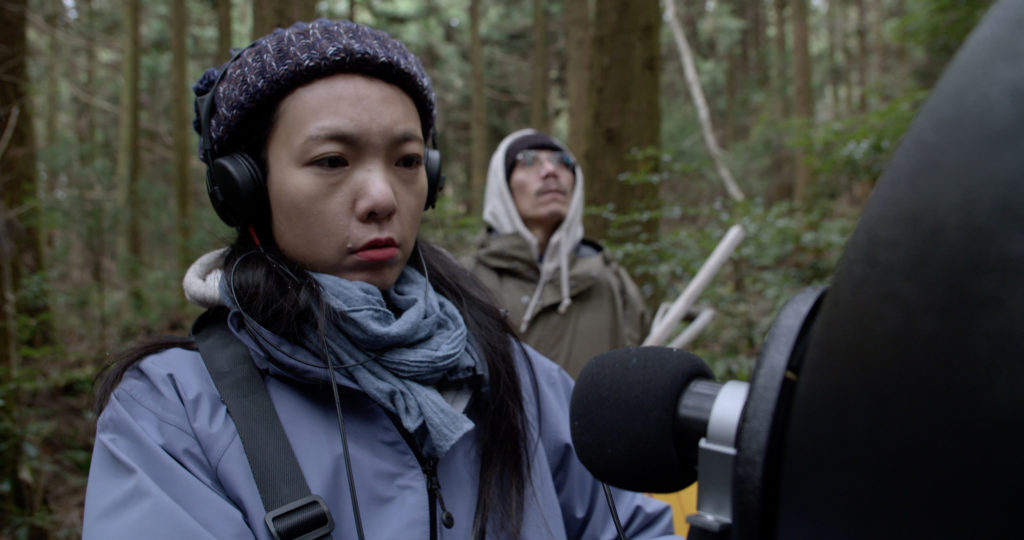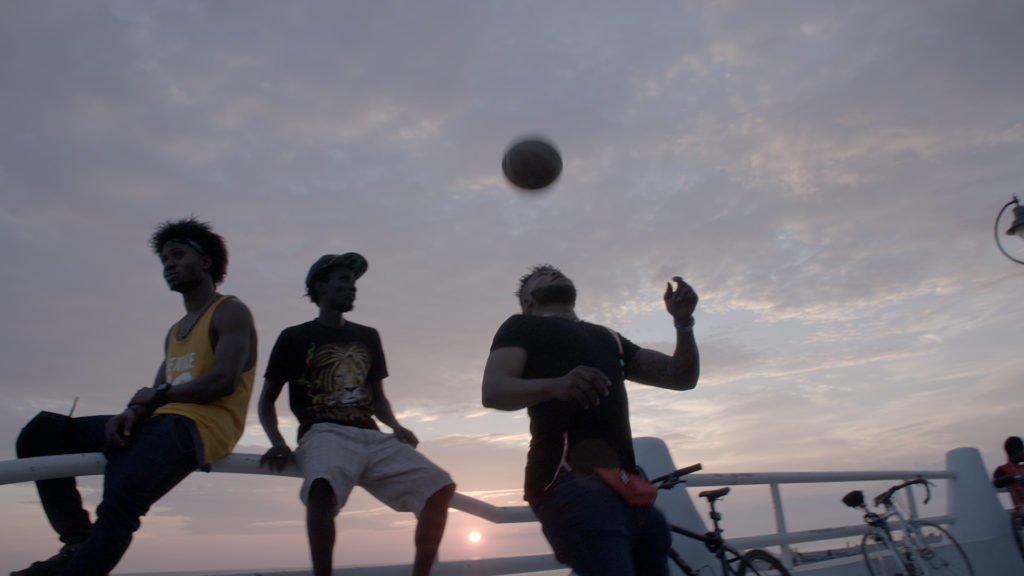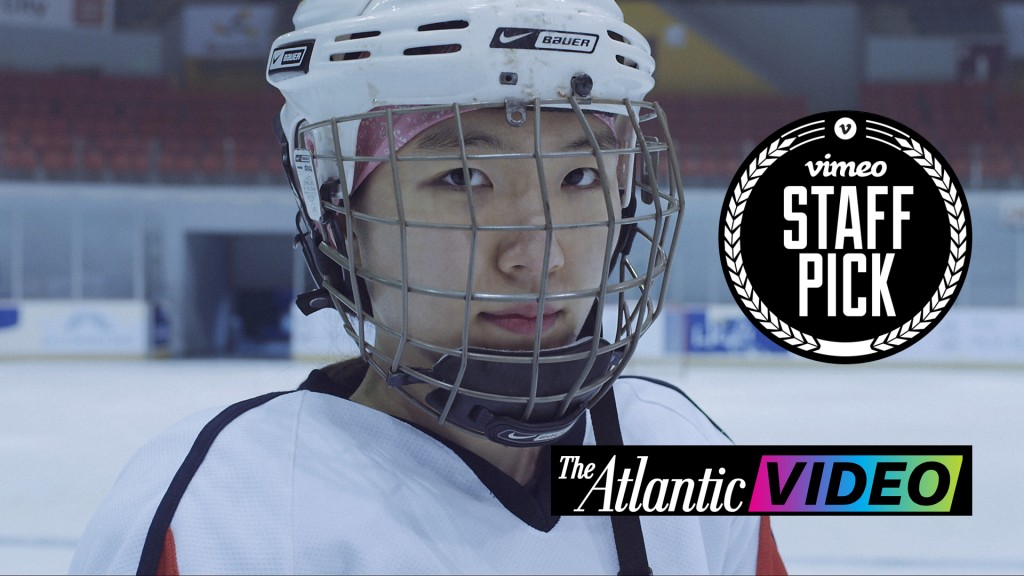documentary
Documentary on Telepathic Communication
Moving & Migration
IN FLUX is a short film which was initially made for a group exhibition for “Gyeonggi Museum of Modern Art” in Korea and the “Kaohsiung Museum of Fine Arts” in Taiwan. The exhibition, titled “Moving & Migration”, was held between February and October 2019, and included artists who reside in both countries.
The History of Migration in Modern Korea
Taking a closer look at Korea’s modern history, migration in its current form is a rather recent phenomenon. Korea had remained virtually shut to international migrants until economic development gathered steam in the late 1970s. In the 1990s the Korean government introduced non-skilled labor migration schemes.
Rise in International Marriages
Around the same time a rise in international marriages significantly increased the numbers of migrants. Apparently over 70 percent of all international marriage cases since the early 2000s are between Korean males and foreign females. This is due to the “bachelor surplus” in Korea. Strong values based on Confucianism were the leading factor to pursue tight family planning and selective birth. There was a strong preference for sons up until the 1980s. The result of this is a severe mismatch in the marriage market. There was a lack of native-born brides for a significant amount of Korean males. Especially those who resided in the countryside.
The Phenomenon of Cross-Cultural Marriage
The phenomenon of cross-cultural marriage was the starting point for making IN FLUX. The main characters of the film themselves are a Korean-Chinese intercultural couple. They create an elixir that transcends language barriers to empower, especially, those who came to Korea as marriage immigrants. There was a rigid anti-settlement policies in the past. But now the Korean government finally has installed a legal support system for marriage immigrants. In tandem with the local communities the government still follows a one-sided assimilation of immigrants into Korean society. Immigrants are expected to fill perceived social voids without altering the fabric of society. This kind of static understanding of the migration process leads to a paradoxical situation. While the government provides structural conditions for immigration, it denies the cultural shifts that have to happen to make place for new social realities.
A Different View on Multiculturalism
We made IN FLUX to explore a different view on multiculturalism, also but not only in Korea. Rather than reproducing the narrative of hegemonic concepts of multiculturalism, IN FLUX drifts off to a more poetic idea of multiculturalism. It turns out to be a catalyst for a new reality. It becomes an unpredictable process. Through that it carries the potential for unknown beauty and is not something to be feared and controlled. By doing that, IN FLUX describes multiculturalism as a constant stream of becoming. Instead of locking it down to a fixed, prescribed meaning.
Team Work
After having collaborated on commercial and artistic projects for more than 5 years, we are proud to present IN FLUX now as our first film, which we directed as a team. Thank you very much, Nils & Udo
ART ATTACK. A short documentary
SHORT SYNOPSIS
The Demilitarised Zone, in short DMZ, is a buffer zone between North and South Korea where only soldiers patrol. Within spitting distance of this military hotspot each year a range of international artists take part in a residency programme in a small South Korean village called Yangjiri. Each year their artistic practices culminates in an exhibition in and around the village. The outcome of this festival-like event and the relations between the artists and the villagers, range somewhere between documentary and fiction. Not only is communication difficult, but there is also a clash of cultures and values. A small village at the border to North Korea is turned upside down for the sake of what could be understood as pretentious art. What we see is a certain surreality, perhaps even in keeping with the character of the DMZ, which has divided North and South Korea for 65 years.
DIRECTOR’S STATEMENT
ART ATTACK is a short documentary shot in a small Korean village called Yangji-ri located just south of the border with North Korea. Every year the Seoul based gallery Art Sonje hosts a contemporary art festival in this very rural area and the public are carried on buses into and out of Yangji-ri. Since the gallery also runs an artist residency programme in Yangji-ri, the participating artists are invited to stay there for their art practices prior to the festival.
During the production of ART ATTACK I spent a couple of days in Yangji-ri prior to and during the festival. The Goethe Institut Korea, which has been one of the sponsors of the festival kindly invited me to deliver my vision of this unique event. For me the most interesting thing about this event is not so much connected to the work of the artists, it is rather the ‘behind the scenes’ related events, where we really see how two different culture and a very different understanding of what art is. Since the villagers voices are not really heard, the audience is left with a sense of art colonialism. It is my belief that in this sense the culture industry, like any other, is marketing its products, the artist and curators, on the international stage.
I hope that ART ATTACK allows us to reflect on an international art circuit, which often comes across as pretentious. Furthermore the film illustrates how interpersonal relationships are often exploited for one’s personal success. I am well aware that my insight into the relationships between the artists and villagers has been very limited, since I only got to spent 6 days in Yangjiri to shoot the film. But while I was filming the documentary, I did not have a lot of preconception nor a fixed approach or storyline in my head. I tried to immerse myself into the situation without being to judgmental nor taking sides with either the artists or the villagers. The story, as it is, was mainly contextualised in the edit. Here it made sense to juxtapose the artists with the villagers in order to contrast their views and opinions. The resulting film is a critical position on a globalised art world and it’s confrontation with a tiny village in Korea close to the Demilitarised Zone. A small corner of the world where people are probably not too concerned about art.
Despite the sometimes heavy subject matter that touch on the Demilitarised Zone, art colonialism and difficult interpersonal relationships, I understand ART ATTACK merely as a comedic film. I had a lot of fun reviewing the footage during the editing process and some parts made me laugh out loud. To highlight humorous elements in the film, I basically had to divide and then lump together what can be summed up as the art world on the one hand, and the world of the villagers on the other. I hope that based on this editorial generalisation none of the artists or villages in this film feel any of their personal rights are being violated and that they also look at this as a comedic film.
Thank you very much for your interest in this film!
Finalist
LAST LETTERS has been shortlisted as a finalist in the documentary category of the One Screen Short Film Festival 2017.
About the One Club
One Screen is the original film festival for the creative community by the creative community. It’s the premiere festival that unites the film and advertising world on One Screen. The One Club for Creativity, producer of the prestigious One Show, ADC Annual Awards and Creative Week, is the world’s foremost non-profit organization recognizing creative excellence in advertising and design. The ADC Annual Awards honors the best work in terms of craft, design and innovation across all disciplines, including Advertising, Digital, Design and Motion. Creative Week takes place in New York City every May and is the preeminent festival celebrating the intersection of advertising and the arts.
The One Club and ADC announced their merger last fall to form The One Club for Creativity, which serves as the umbrella organization for The One Show, ADC Awards, Young Guns, Young Ones, Creative Week, One Screen, Hall of Fame and a wide range of global education and diversity programs. The new entity celebrates the legacy of creative advertising and design, and uses that legacy to inspire future generations.
The awards shows each have their distinct focus: the ADC Annual Awards maintains its historical concentration as the champion for craft, design and innovation, while The One Show continues its focus on creativity of ideas and quality of execution.
The Line Up
I am honoured that LAST LETTERS is part of this year’s strong documentary section line up by competing with exciting films like Anderson Wright’s NZINGHA, Joris Debij’s PERFECTLY NORMAL, Henry Busby’s THE UNBELIEVERS: BURNELL COTLON, Keith Rivers’s THE QUIET MAN, FCB Chicago’s THE UNFORGOTTEN, Wild Breed Productions NEPAL: A FRAGILE STATE, Supply & Demand’s PICKLE and Jon Bunning’s THE TABLE.
The Event and Tickets
Winners will be recognized at the awards ceremony on October 17 at Sunshine Cinema (143 East Houston Street), a Landmark Theatre in New York City’s Lower East Side. You can now secure your tickets if you tickets. Doors will open at 6:30 pm and the screening starts at 7:00 pm. After the event there will be a networking reception from 9:00 pm onwards. Ticket prices are $US 15 for members and $US 20 for non-members. Drinks and hors d’oeuvres will be served following the screening.
Last Letters
On the 16th of April 2014 a ferry en route from Incheon to Jeju Island in Korea capsized. 304 out of 476 passengers and crew members died in this tragic accident. LAST LETTERS follows eight families that lost loved ones that day, and explores the physical and emotional spaces that the tragedy left behind. The film juxtaposes documentary and fictional elements. It shines a light on this still unsolved tragedy and shows the isolation the families feel while they pose for an incomplete family portrait.
LAST LETTERS on THE ATLANTIC
After the short documentaries CHOA and BIKINI WORDS now also LAST LETTERS has been featured as an Editor’s Pick by The Atlantic. Thanks to Nadine Ajaka for showcasing the video! LAST LETTERS is a journey through loss, space and memory. The film commemorates the victims of the tragic Sewol ferry accident, in which 304 out of 476 passengers and crew members died in 2014.
LAST LETTERS on SHORT OF THE WEEK
LAST LETTERS has been selected as a SHORT OF THE WEEK ! Each day the prestigious online platform Short of the Week features one handpicked film, which they consider to be among “the greatest and most innovative stories from around the world”. This way Short of the Week has been serving up epic, bite-sized films to millions around the world since 2007. Please follow this link to watch LAST LETTERS on Short of the Week and have a look at Jason Sondhi’s much appreciated review (right below the film).
LAST LETTERS. A short documentary
On the 16th of April 2014 a ferry en route from Incheon to Jeju Island in Korea capsized. 304 out of 476 passengers and crew members died in this tragic accident. This short film follows eight families that lost loved ones that day, and explores the physical and emotional spaces that the tragedy left behind. The film juxtaposes documentary and fictional elements. It shines a light on this still unsolved tragedy and shows the isolation the families feels while they pose for an incomplete family portrait.
More than 2 1/2 years have passed since the Sewol ferry tragedy, which took place on the 16th of April 2014. This day has marked a black day on the Korean calendar ever since for many people. Korea has not been the same again.
Many of the remaining family members of the victims have become engaged in activism due to dissatisfaction with the Korean government and how they handled the tragedy. Nine of the victim’s bodies have never been recovered while the government failed to retrieve the shipwreck to carry out a full investigation. Many people in Korea, not just those affected directly by the tragedy, have many questions about the circumstances of the accident and who should be held responsible for the loss of so many innocent lives. Several Korean filmmakers have tackled the Sewol disaster to examine how this could have happened. And since these documentaries are investigative, I felt I would rather like to create something from a different point of view.
As most of my work is inspired by space and architecture, the living spaces of the remaining family members became the focus of this film. I also wanted to make a documentary film with fictional elements and more of a poetic approach, which hopefully speaks to the families instead of stirring up their anger with hard facts. I hope that this is a film which could bring them some measure of peace in relation to their lost loved ones.
I really hope that this film speaks to the families, but also makes a bigger international audience aware of this dark day in Korean history. This is something the families, who have been abandoned by the Korean government in their search for the truth, are really hoping for.
(Nils)
THIS ISLAND IS OURS. Feature Documentary
The territorial dispute between Japan and Korea over the ownership of the Dokdo/Takeshima islets is not limited to state to state relations. In both countries there are citizens’ groups actively engaged in protesting, lobbying and educating the public. This Island is Ours follows a Korean kindergarten caretaker with a background in student activism and a recently widowed Japanese housewife as they campaign tirelessly for the soveignty of the tiny islets that are currently controlled by Korea, but also claimed by Japan. This film creates a rare insight into the lives of the two activists on both sides by presenting their parallel experiences from a neutral point of view.
This documentary results from collaboration between Seoul based filmmaker Nils Clauss and Wellington based Alexander Bukh, a scholar of international relations of Northeast Asia.
CHOA nominated as 2014 Film Grant Finalist
After a Vimeo Staff Pick and a showcase on The Atlantic, now CHOA has also been selected as a finalist for the Documentary Film Award 2014 by the Manuel Rivera-Ortiz Foundation. Adam Hobbs and Nils Clauss would like to thank UIC and Choa Choi for making this possible in the first place. For more information follow this link.
CHOA featured in THE ATLANTIC
Skating with the Guys. A female hockey player from South Korea describes what it takes to complete. The film was a collaboration between UIC Yonsei University and filmmakers Nils Clauss and Adam Hobbs. Big thanks to the The Atlantic for featuring the CHOA video. Check out the film here.




















